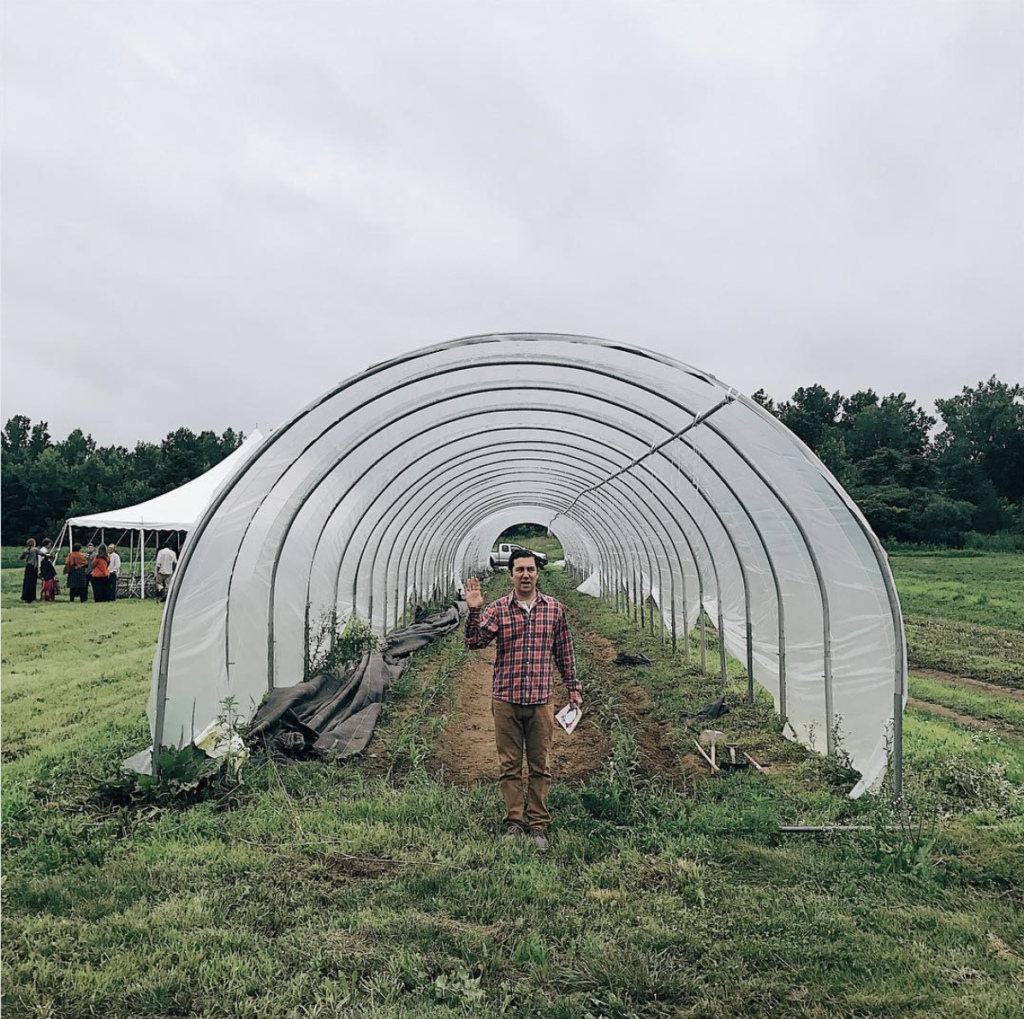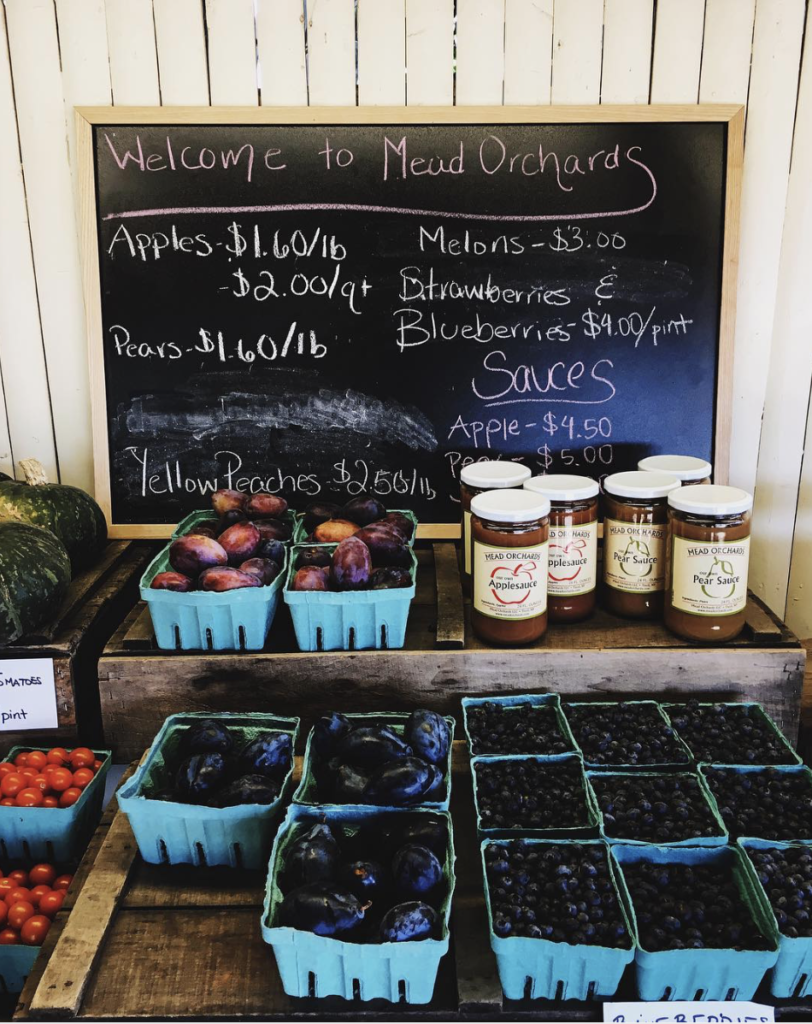Within just a few months living in New York’s Hudson Valley, we stopped buying our eggs anywhere but Sawkill Farm down the road. “Your eggs are better than anyone’s,” I told Kallie who runs the store and who moved from Brooklyn not long ago herself. She beamed with pride, but I don’t think it was the first time someone gave the compliment.
“Cidiot” refers to a hardened city person who moves to the country and acclimates through experience. After 20 years in Manhattan, my husband and I purchased an 1847 cottage in the farm community of Red Hook, and a year later, are shifting more of our lives here even as we clearly have so much to learn. Transitions are not easy. The people, the culture, the time in the car. Schoolings are daily, from simple things like a favorite restaurant’s unexpected closing because a new calf was born to sudden road work on a one-lane bridge with a detour that GPS can’t calculate. Other shocks are more substantive, like a septic system fail or emotional, like noticing a Confederate flag hanging on a neighbor’s porch. Your sense of normal changes.
As a writer, I had hoped the shift in geography would reinvigorate my writing, and it has. Farm stand shopping alone is helping me talk in new ways about food, taste and color. Curiosity is fuel in a new place, with new experiences, new relationships, new words—and even new smells.
For me, the most important lessons of living here start with the farms:

Be your own sheep
We first got a whiff that animals were for real in the bank’s mortgage paperwork. The county has a clause which says you understand you are buying in farm country with active livestock. Our attorney said the wording was added after city folk ignited lawsuits over “farm smell”—that bouquet from the barn, which becomes increasingly familiar if your property, like ours, is downwind. Sheep and goats will gently graze right up to the property line, and I recorded the sheep bleat (their cry) as a mobile ringtone. Before I write in the morning, I take carrots and our puppy Nora to visit Bert and Ernie, two donkeys. When Ernie sees little Nora approach, he trots down to greet us at the fence. Nora’s tail wags, and when Ernie feels flirty, he kicks. There’s a children’s storybook here.
Eat fresh
Farm stands alter weekly food shopping, whether you’re picking up fresh eggs or returning milk bottles for the deposit. We go to Greig Farm every Saturday and joined a local CSA (Community Supported Agriculture) in the Spring. From both, I’ve learned what’s in season and fresh. Early weeks have asparagus, summer has tomatoes and corn, fall is root vegetables like squash and potatoes. There always seems to be kale. Supermarkets become fill-in and Amazon is for water, paper goods and anything in bulk. Like many we’ve met, we’re biased towards farms near home. They are inexpensive, the people know us, the food is delicious and why not support local growers. Many supply top restaurants in New York City. In a few years, I imagine there will be farm tours and hospitality centers the way the wine industry does in California.
Create a table
This is not a weekend escape. Early on, my husband and I committed to building a life here. Through dinner parties, local events and even just sitting at a bar striking up conversation, we’ve made friends in different social circles. It took persistence and saying yes to every invitation, but over time, we found various single and couple friends who will host a dinner or show up with a dish at yours. A few like a writer couple and a pair of professors at the local college live here full-time. A fair number split time like us, though everyone has a wish to be here more as the years go by. We find it takes work to build these relationships, planning ahead, rotating hosting, celebrating holidays, and even mundane drive-by or errands together. We’ve also found we need a network of support. We found a guy to help maintain the house and fix things that we cannot, as well as look in on it when we’re not here. Home services are spotty, appointments are often good intentions rather than commitments to show up. A guy painting our fence walked off the job only halfway done. You can scream and posture all you want (and we did), but it doesn’t change that things work differently here.

Under the hood
Apartment life doesn’t prepare you for rural living. Power sources we clearly took for granted. One humbling lesson has been septic systems. We only found the exact location of our leach field (and what it even was) when the system failed and we had to tear up the lawn to replace it—a crash course in infrastructure and insurance. We’ve also become students in oil versus gas versus electric heating and are somehow stuck with all three, plus a potbelly stove in the living room. Our house doesn’t have air conditioning, and it’s a game for us to see how many summers we can go without installing it. Meanwhile, I keep stockpiling batteries and water and regular outages led us to buying a standby generator. I now watch that TV show about doomsday preppers.
Very Social Media
Internet connections aren’t great. There’s cable, satellite and DSL, which feels retro in today’s advanced digital age but works most of the time. Like many towns there are community Facebook groups where you can find out what’s happening in the schools, announce a garage sale, borrow a shovel, or get recommendations on a plumber. My favorite social network is “The Empire Regulars,” an email listserv of train commuters to and from New York that not only reports from which track the train is leaving and any delays, but is a forum to plan retirement parties and beg for help if someone, say, accidentally leaves a smoked salmon platter in a car on the 5:47. Which happened.
Beyond weekender
“Cidiot” isn’t the badge I want, hoping to graduate from it to “Local.” “Weekender” sounds neutral, I suppose, but implies our default home is elsewhere, not the signal we want to give off. Practically speaking, we have a suspicion there’s a mark-up on services for weekenders and perhaps a double mark-up on gay couples like us. We even got a local phone number so that our first impression on the receiving end would not be from elsewhere. The truth is, we’re committed to building a life here. We switched our driver’s licenses, voting, car registration and mail to this address. The city is now the place we spend part-time, Monday nights to Thursday mornings, our apartment building more a hotel than a home. For us, with the goats, the sheep, the farmers and all the other cidiots we’ve met so far—where we truly live is here.

Share this post with your friends.

